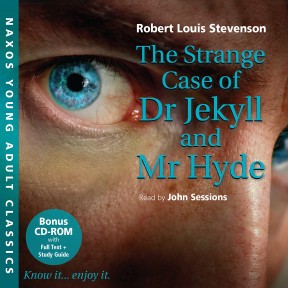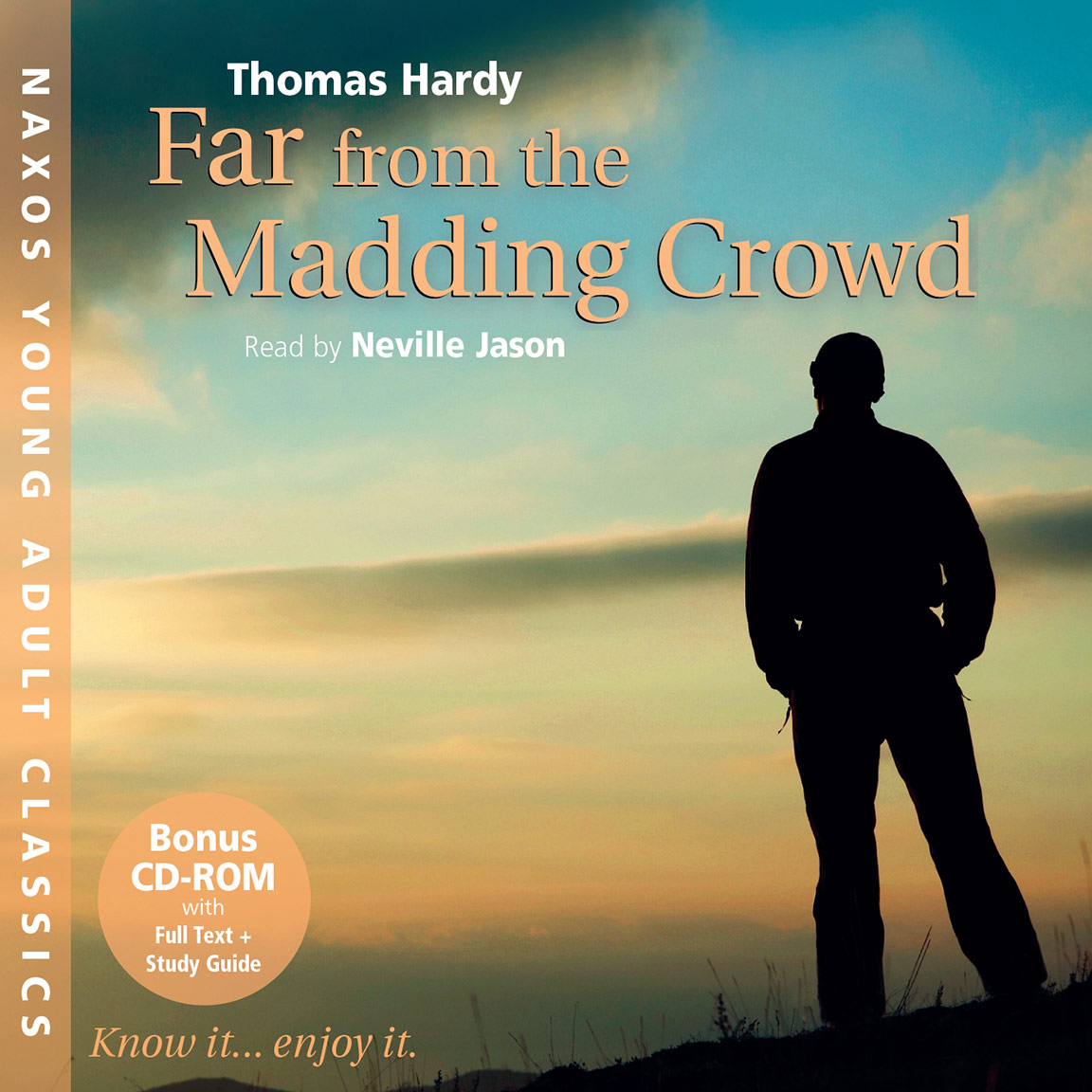
Audio Sample
Robert Louis Stevenson
Young Adult Classics – The Strange Case of Dr Jekyll and Mr Hyde
Read by John Sessions
abridged
Scientist Dr Jekyll discovers a way of changing his personality and becoming the violent and aggressive Mr Hyde. At the start, moving from one to the other is easy. But not for long. Both a psychological investigation and a thrilling story, the double nature of the hero has made him an iconic figure in literature. The tempestuous nature of the tale makes it an ideal title for the Young Adult Classics series. This is part of the ‘Young Adult Classics’ series launched by Naxos AudioBooks in 2009: each title contains a CD-ROM with extensive ‘teacher notes’ and the full text of the audiobook.
-
Running Time: 2 h 34 m
More product details
Digital ISBN: 978-962-954-856-8 Cat. no.: NA296612 Download size: 38 MB BISAC: YAF009000 Released: June 2009 -
Listen to this title at Audible.com↗Listen to this title at the Naxos Spoken Word Library↗
Due to copyright, this title is not currently available in your region.
You May Also Enjoy
Reviews
The many films of the Jekyll and Hyde story make you overlook what a cracking good writer Stevenson was. Read with gothic gusto, this tragic tale of the intellectually
curious Dr Jekyll overpowered by his murderous alter ego is still horrifying.
Rachel Redford, The Observer
Booklet Notes
Why Study Literature?
The famous Greek philosophers Plato (427–347 BC) and Aristotle (384–322 BC) first clashed when answering this age-old question. Plato felt that literature should be banned. He believed that it was a poor copy of the real world and inflamed people to do stupid and wild things in the manner of its heroes. But Plato’s pupil Aristotle argued that far from corrupting our minds literature actually improves us, enabling us to become more moral by making us feel both pity and fear for its central characters.
The argument today remains more or less the same. Literature’s detractors believe it can lead us astray by making us feel sympathy for evil characters, while literature’s defenders take Aristotle’s view that by feeling for fictional characters we become better people, better at empathising and imagining ourselves in different situations.
As a teacher and lover of literature, I take Aristotle’s view: literature takes us to places that we would never otherwise experience. And reading about murderers doesn’t mean we will imitate them; we may actually learn from their grave errors. Literature affords us the chance to live through other people’s tragedies and triumphs, as a result of which we ourselves may emerge wiser, more thoughtful and happier than before.
Francis Gilbert
Robert Louis Stevenson’s Life
1850 Born in Edinburgh, Scotland.
c. 1855 Illness as a child meant irregular attendance at school. Instead, his mind was nourished by reading and by composing stories.
1867Enrolled at Edinburgh University to study engineering, but studied law instead due to ill-health. He hoped this would provide him with a steady income should writing – his chosen path – fail him.
1871–3 Published articles in the Edinburgh University Magazine and The Portfolio.
1875 Called to the Scottish Bar.
1878 Travelled throughout Europe looking for a climate more suited to his delicate health.
1878 Met Fanny Vandegrift Osbourne, a married woman with two children, while in France.
1879 Followed Fanny to California, where she divorced her husband.
1880 Married Fanny Osbourne, 10 years his senior. They travelled around Europe shortly after, and lived variously in London, Bournemouth and elsewhere.
1881 Treasure Island, a romantic adventure story, was serialised in Young Folks, giving him his first fame.
1883 Treasure Island published as a novel.
1884 Continued to contribute to various periodicals, including The Cornhill Magazine and Longman’s Magazine.
1885 A Child’s Garden of Verses, devoted to Alison Cunningham, his childhood nurse, published.
1886 Kidnapped, a story about David Balfour, his distant ancestor, published.
1886 The Strange Case of Dr Jekyll and Mr Hyde published.
1888 No longer being able to tolerate a European climate, he finally abandoned Britain as his home, relocating to the Samoan islands.
1889 The Master of Ballantrae published.
1889 Wrote The Wrong Box with his stepson Lloyd Osbourne.
1893 Fanny suffered a mental breakdown.
1893 His famous story The Beach of Falesá was published in Island Nights’ Entertainment.
1894 The Ebb-Tide, condemning the European colonial exploitation, published.
1894 Died 3 December of a brain haemorrhage.




